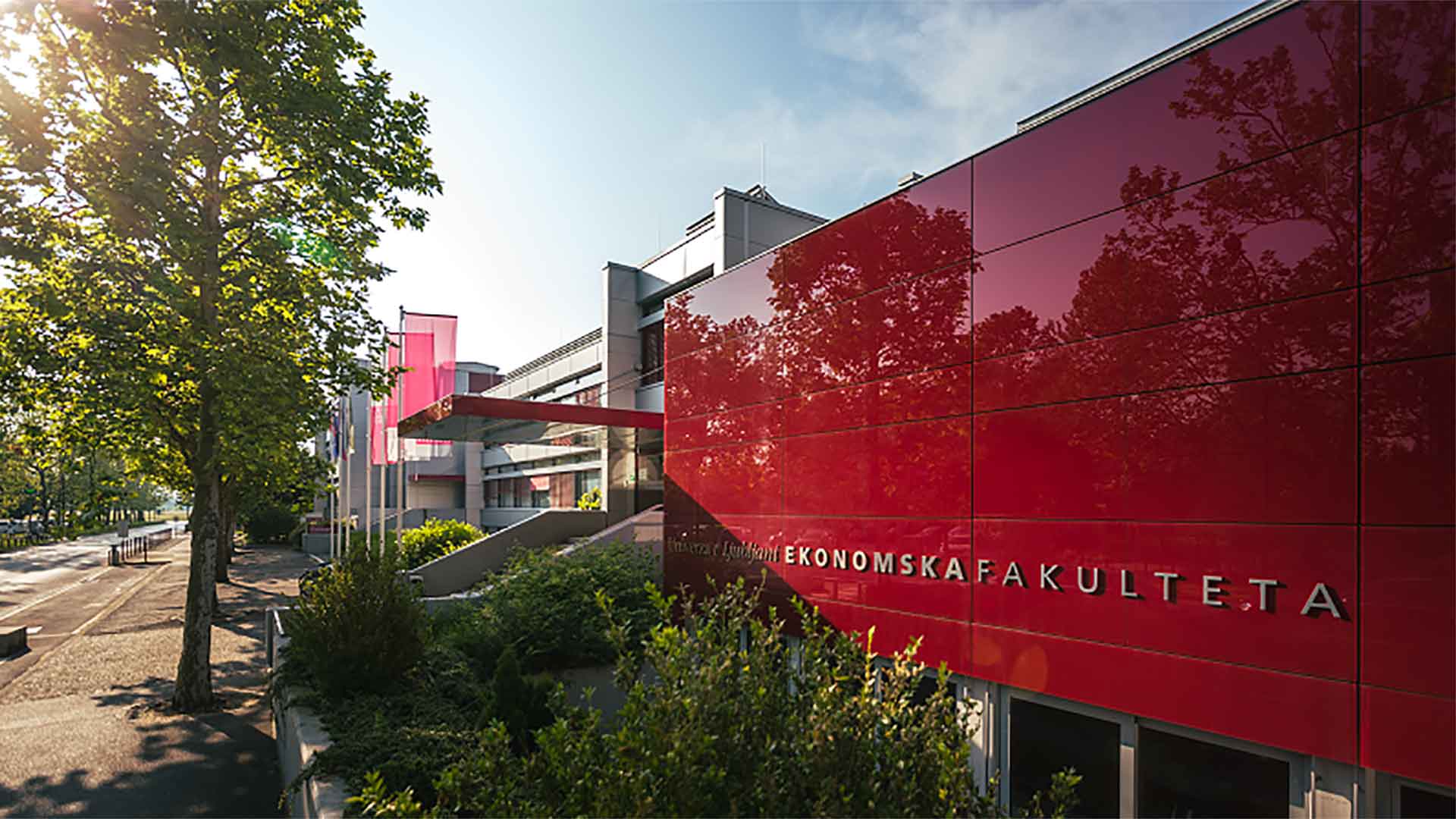“Now that I’m already aware of how Slovenian companies operate, I want to advise graduates of study programmes in Economics who are looking for work to show a certain degree of courage and do something that, at first glance, might seem unusual,” says a graduate of the Ljubljana University’s Faculty of Economics, Maša Madon. We bring to your attention an interview with Maša Madon, which is dedicated to the 100th anniversary of the university as part of the Teaching Through the Eyes of Former Students project.
After graduating from a Master’s degree programme at the Faculty of Economics, Maša Madon got a job at the Centre for Excellence in Business at the Faculty of Economics (CPOEF), which was opened in 2011 with the aim of transferring academic knowledge to the economy. Her work combines financial management, sales and strategic development of educational and consulting projects for various Slovenian and foreign companies. Maša is also an assistant in Accounting subject at the Faculty of Economics.
She decided to enter the Faculty of Economics since she had been interested in mathematics since school time. However, while studying at the faculty, she quickly came to the conclusion that the economy is much wider than just the numbers. “During the first week of training, I thought – Oh my God, Maša, what are you doing here?! Fortunately, I soon became convinced that I had made the right choice, and now I can say that studying at the Faculty has met my expectations.”
“The Faculty of Economics is one of the largest in the country, which is reflected in its work,” says Maša. “From my own experience, I’ll say that all processes are well-tuned here, especially from the student’s point of view, when it is necessary to resolve certain red tape issues. The Faculty is internationally recognized. This can be evidenced by the possibilities of exchange studies and obtaining a double diploma, cooperation with invited foreign teachers and the trips of our tutors abroad. To my mind, the advantages of studying at the Faculty also include a highly organised Career Centre, which is well connected with the economy sector, and a strong Alumni EF Club, which allows you to maintain contact with the Faculty even after graduation.”
The combination of theory and practice at the Faculty of Economics, according to Maša, depended on the teachers and assistants, on their engagement, on the initiative of students themselves and their desire to cooperate. “Each subject at the Faculty consists of lectures and seminars, and as part of the seminars, students often work on projects that sometimes take the entire semester to be completed. These projects, if the subject is related to practice, often help solve the problems of a particular company. Representatives of the company, including those in the status of mentors, can also participate in the implementation of these projects. The best chance for a student is the opportunity to present the project in the office of the company or in front of the company representatives.”
In addition to the required academic standards, according to Maša, students have time for leisure. “The Faculty has a rich offer of extracurricular activities. Even though I discovered them a bit late for myself, I still managed to take full advantage of them. Now, communicating with junior students, I always advise them to be proactive, active, ask questions, attend events, join sections or clubs, participate in projects that provide connect with companies, in cultural and sports events. I think this is one of the undoubted advantages of the Faculty of Economics.”
With regard to employment, Maša Madon says that she had no problems with employment, since she’d had a relevant chance before she even seriously started looking for it. When she was working on her Master’s thesis, Maša’s mentor told her about the vacancy for students at the Centre for Excellence in Business at the Faculty of Economics and wrote a recommendation for Maša. Over time, the Student vacancies led to official employment. A similar practice, when teachers recommend students to representatives of the economy sector, according to Maša, is quite common. At the systemic level, the assistance of the Faculty of Economics in employment is carried out within the framework of the Career Centre. The Centre is active and cooperates with many companies interested in working with students economists.
Maša advises freshmen to be active, motivated and look for their chances. “The more active and motivated you are, the more convincingly you show what you strive for and what you are capable of, the more open teachers will be with you, the more the Faculty can help you with professional formation and job search.” She advises graduates to be active. “Although there are lots of vacancies open on the labour market today, you must find your own, the most suitable for you job. However, it may happen sometimes that the work will find you itself. It seems to me that it’s good to have a bit of courage. Now, looking back, knowing how Slovenian companies operate and how they select employees, it seems to me positive if a graduate takes the initiative, builds contacts participating in events and interviews. That is, do something that, at first glance, may seem too straightforward or unusual when communicating with company representatives.”
Source: rtvslo.si
